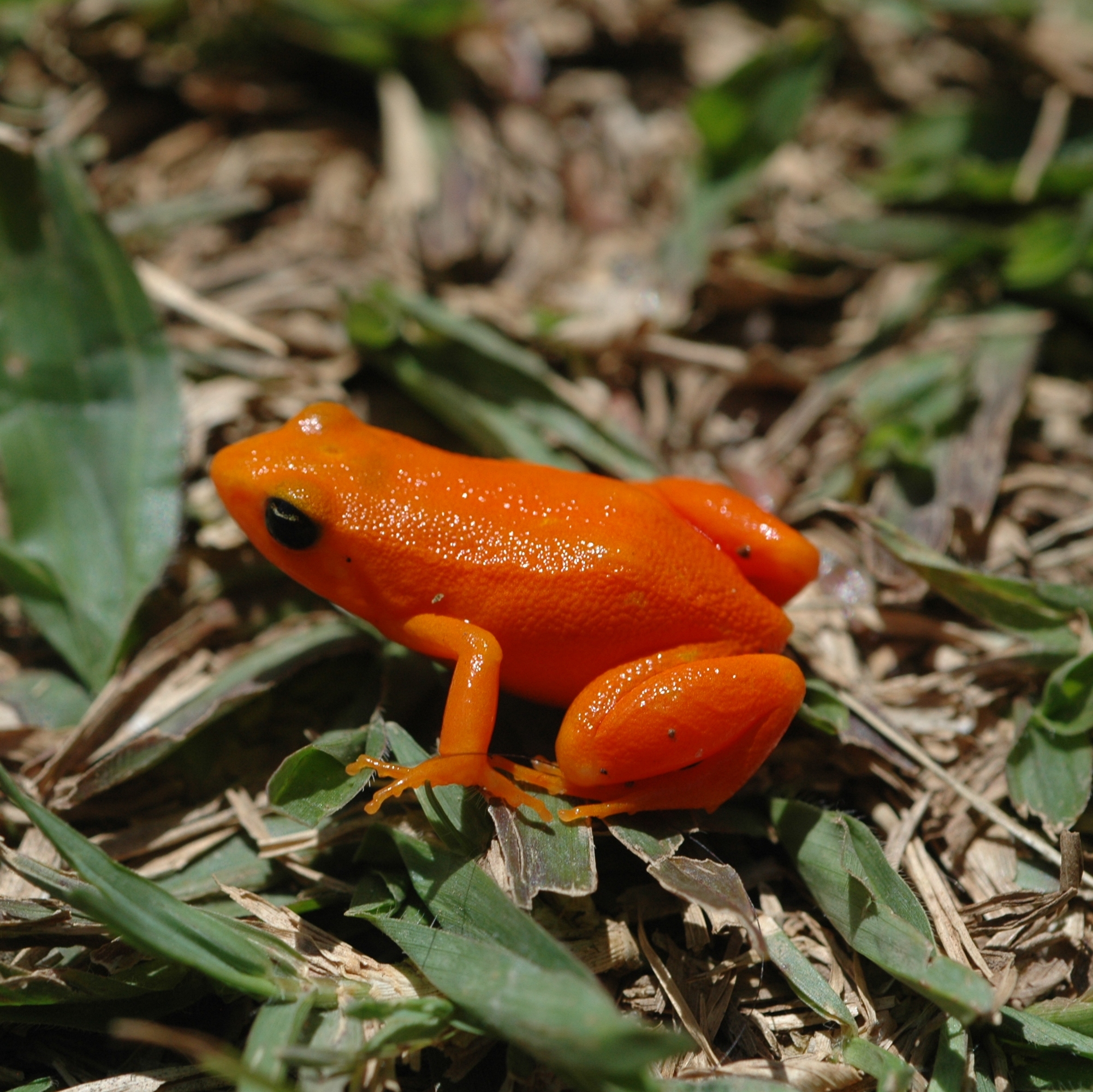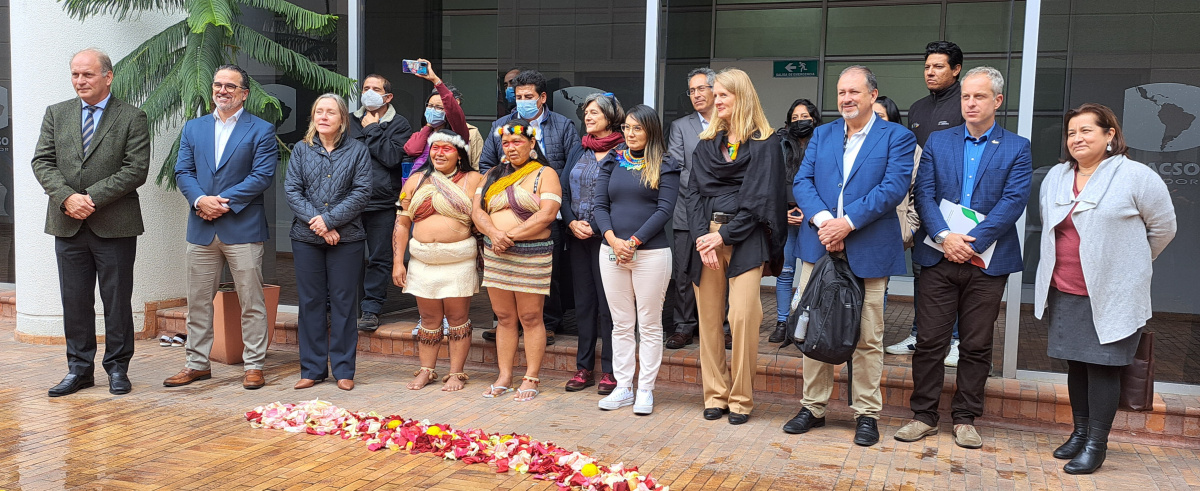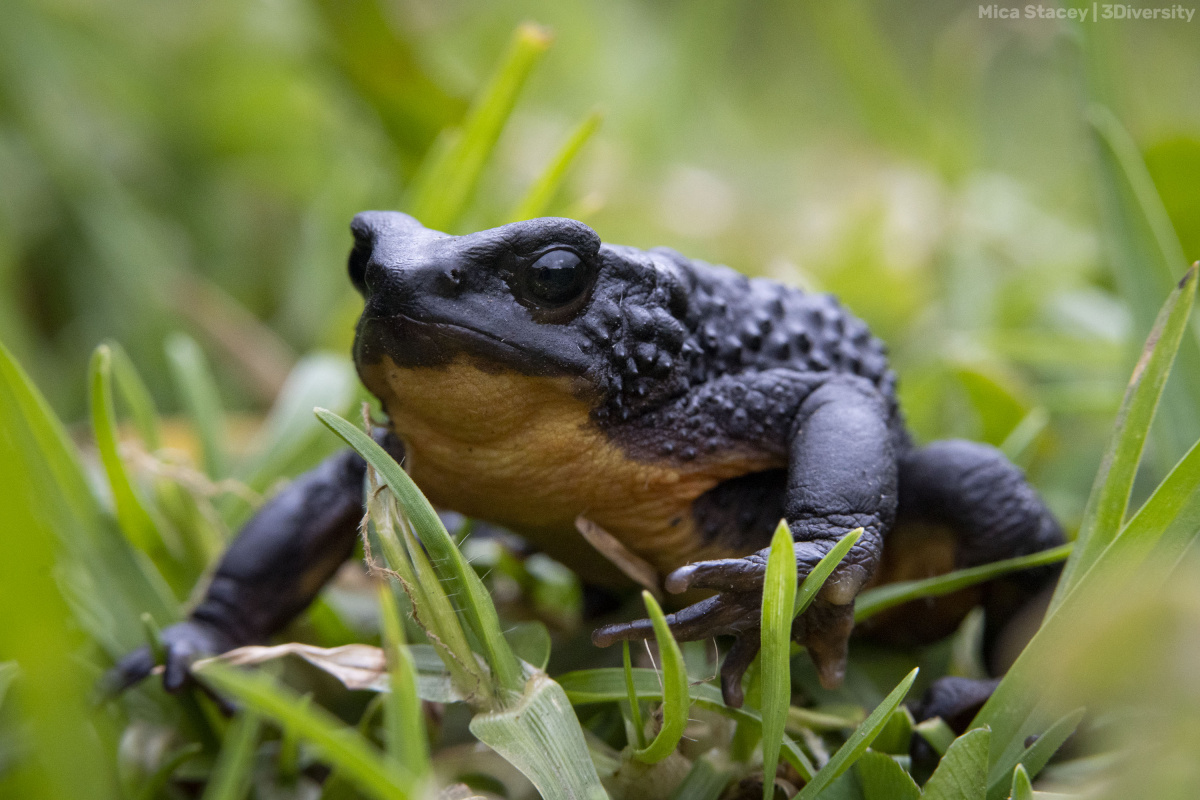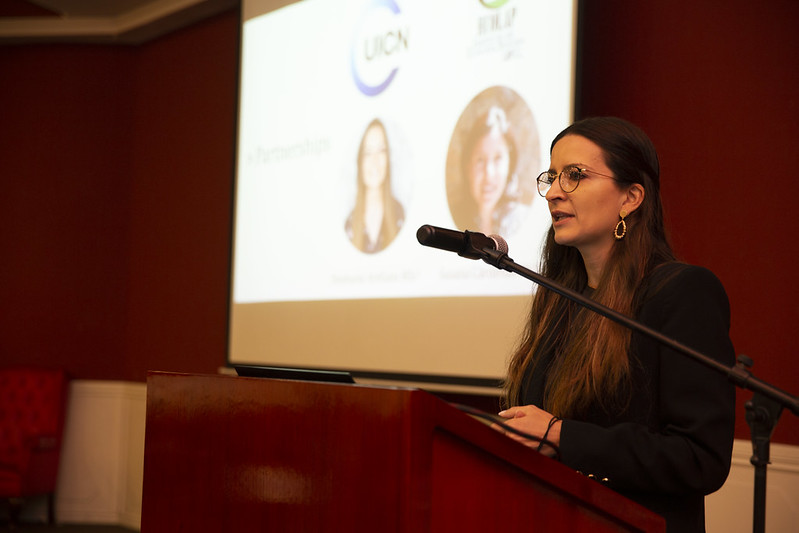Deadly frog fungus targeted by amphibian experts
The world’s leading amphibian experts have come together and for the first time identified two major conservation initiatives to stop amphibians going extinct.

Photo: Jean-Christophe Vié
A new coalition of organizations, the Amphibian Survival Alliance, will be set up to focus on containing the spread of the amphibian chytrid fungus and protecting habitats which are home to amphibians that occur nowhere else in the world.
Amphibians are the most threatened group of animals in the world, with one in three of the 6,000 recognized amphibian species at risk of extinction.
“The world’s amphibians are facing an uphill battle for survival,” says James Collins, Co-Chair of the IUCN Amphibian Specialist Group. “Infectious diseases, habitat loss, climate change, introduced species, commercial use and pollution all affect amphibian survival. By far the worst threats are infectious disease and habitat destruction so the Alliance will focus on these issues first.”
The alliance, proposed at the first Amphibian Mini Summit, at the Zoological Society of London last week, brings together amphibian specialists working in the wild and those in zoos, aquariums and botanical gardens.
“If we want to stop the amphibian extinction crisis, we have to protect the areas where amphibians are threatened by habitat destruction,” says Claude Gascon, Co-Chair of the IUCN Amphibian Specialist Group. “One of the reasons amphibians are in such dire straits is because many species are only found in single sites and are therefore much more susceptible to habitat loss.”
Curbing the spread of amphibian chytrid fungus is also a top priority for the amphibian experts. This effort will focus on identifying the presence of naturally-occurring bacteria, which seem to render some amphibians resistant to the killer frog disease, and investigating their use in managing the disease in other species. So far these bacteria have only been found on a few species and this approach needs more research.
Anti-fungal drugs to combat the deadly disease, exploring resistance in captive-bred populations and translocations all need to be investigated. The alliance will look into policies to prevent the spread of the fungus to new places, such as Madagascar, which so far shows no evidence of the presence of the amphibian chytrid fungus.
“Amphibians have so much to offer humans,” says Simon Stuart, Chair of the IUCN Species Survival Commission and convenor of the Amphibian Mini-Summit. “Many have an arsenal of compounds stored in their skin that have the potential to address a multitude of human diseases. However, opportunities are being lost, such as the Southern Gastric Brooding Frog, which could have led to the development of a medicine for human peptic ulcers, had it not gone extinct. We simply cannot afford to let this current amphibian extinction crisis go unchecked.”
The new Alliance will work with partners to implement the Amphibian Conservation Action Plan and to raise the profile of amphibians in 2010, the International Year of Biodiversity.
For more information or to set up interviews, please contact:
- Sarah Horsley, IUCN Media Relations Officer, t +41 22 999 0127, m +41 79 528 3486, e sarah.horsley@iucn.org
- Lynne Labanne, Communications Officer, IUCN Species Programme, t +41 22 999 0153, m +41 79 527 7221, e lynne.labanne@iucn.org
The Amphibian Survival Alliance is supported by:
Alliance for Zero Extinction
Amphibian Ark
Arizona State University
Chester Zoo North of England Zoological Society
Chicago Zoological Society
Conservation International
Deutsche Gesellschaft für Herpetologie und Terrarienkunde (DGHT)
Frankfurt Zoological Society
IUCN
James Cook University
Museo Regionale di Scienze Naturali, Torino
Oro Verde Foundation for the Conservation of Tropical Forests
Partners in Amphibian and Reptile Conservation
Smithsonian Institution
Society for Tropical Ecology – gto
The Prince's Rainforests Project
University of Maryland
Washington State University
World Association of Zoos and Aquariums
Zoo Atlanta
Zoological Society of London
Zoologischer Garten Frankfurt



